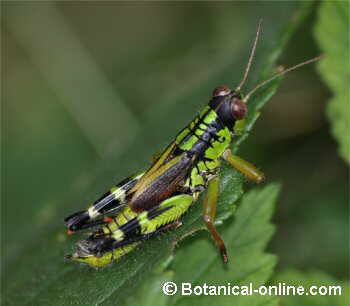Contents
What are pinworms?
There are many intestinal worms that can measure from a few millimeters to 1 meter.
The most common ones are pinworms (Enterobius vermicularis), white worms up to 1 cm in length. They can infect any person on the planet, although they use to infect children
Characteristics of pinworms
Pinworms, also called threadworms or seat worms, are worms that live in the human intestine. The females lay their eggs in the anus, especially at night.
The movements of these worms in the margins of the anus are the cause that people infected experience a intense itching.
This often leads them to scratch the itching area which, in addition to subsequent contamination, produces erosion in the area that can can become infected.
Symptoms of pinworms
The main symptoms of having pinworm infection are: Itching in the anus, irritability, nervousness, difficulty sleeping, infections from scratching the anal area or, in more extreme cases, thinness and lack of appetite.
Causes of pinworm infection
The root causes that cause infection are:
– Ingestion of contaminated water or food: The larvae or eggs of pinworms are found in contaminated food, especially through vegetables or vegetables irrigated with sewage infected by these worms. When these foods are not thoroughly washed and eaten raw, pinworm can penetrate inside the body.
– Contact with the larvae that can penetrate through the skin: This type of infection is very common in young children. These may have infected hands because of scratching their anal area and leave the eggs or larvae on clothes, hands or objects.
Ingestion of these eggs or larvae can infect others or reinfect those affected. Sometimes children can enter the infected finger in his mouth or in the mouths of other children. This type of infection can also occur in older people.
Diagnosis and treatment of pinworms. How to avoid infection?
The presence of pinworms may be detected directly by the existence of them in the stool. Sometimes they can be seen straight into the anus.
There is a test that involves placing an adhesive tape on the anal zone in the first hour of the morning after taking a bath during some seconds. This tape is subsequently analyzed for the presence of eggs (pinworm tape test = Oxyuriasis test) sometimes this test must be done 2 o 3 times before obtaining eggs.
To prevent the spread of roundworms we should observe the following precautions:
– Wash all fruits and vegetables that have to be eaten raw. (A good way to ensure sterilization is add a drop of bleach per liter of water and leave fruits and vegetables to soak there for a few minutes)
– Wash the clothes of affected people and do not share clothes, as towels.
– Wash hands thoroughly before eating.
– Avoid scratching the anal area when feeling itchy, something which is usually very common in young children. This would avoid both the possible erosion of the skin around the anus and the possibility of spreading the infection to other people or to yourself.
![]() More information on pinworms, other intestinal worms and its natural treatment
More information on pinworms, other intestinal worms and its natural treatment







